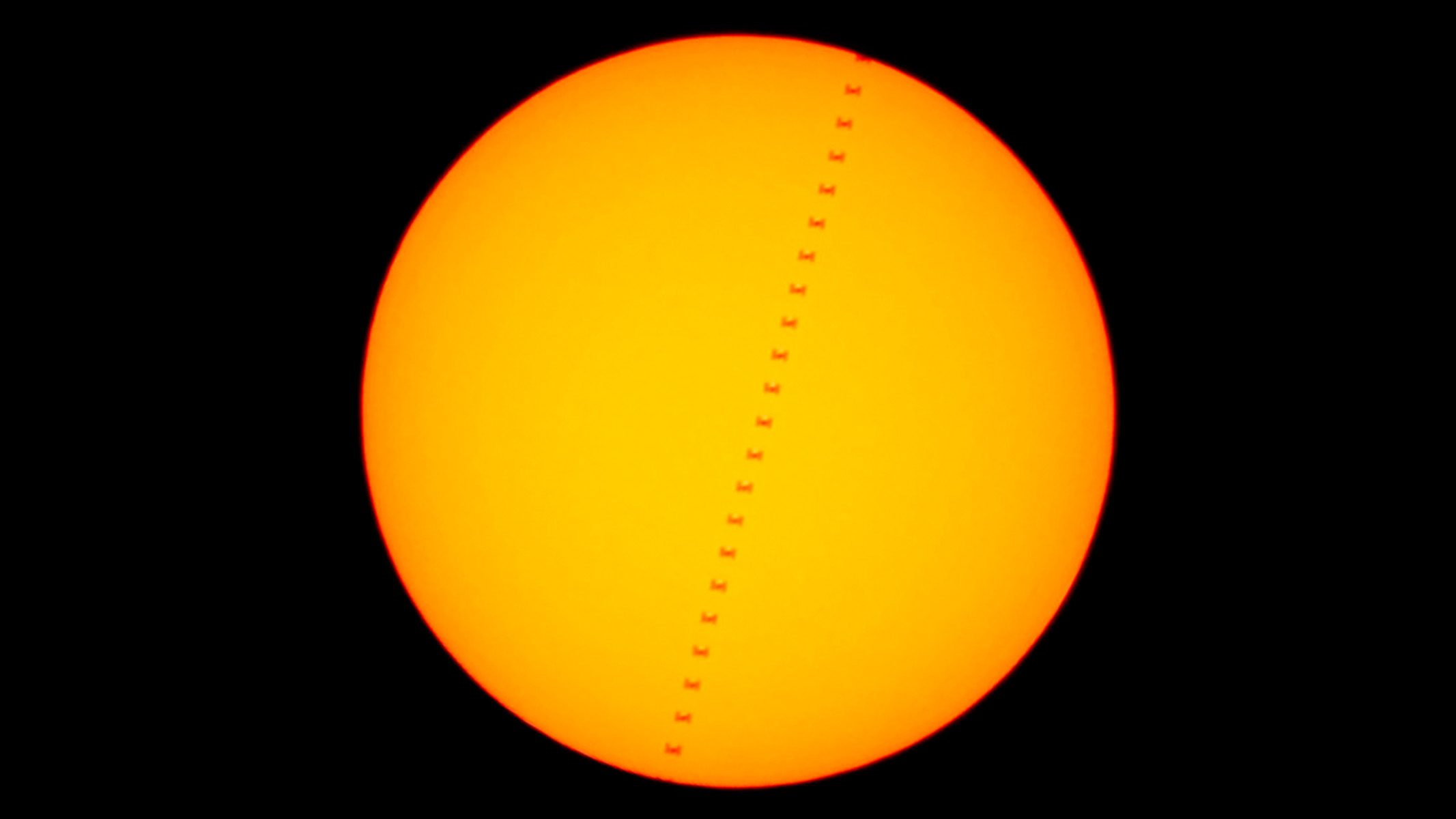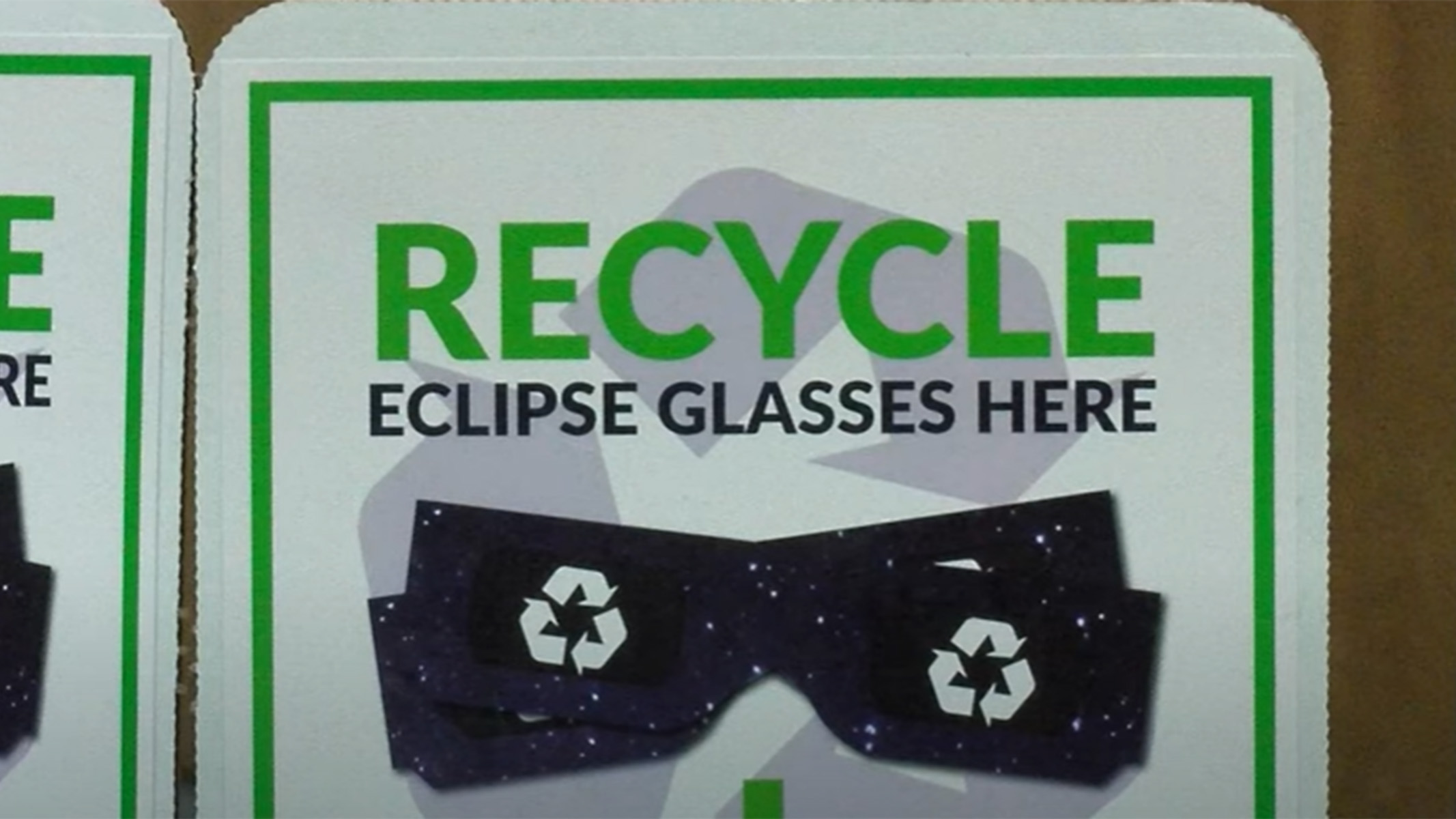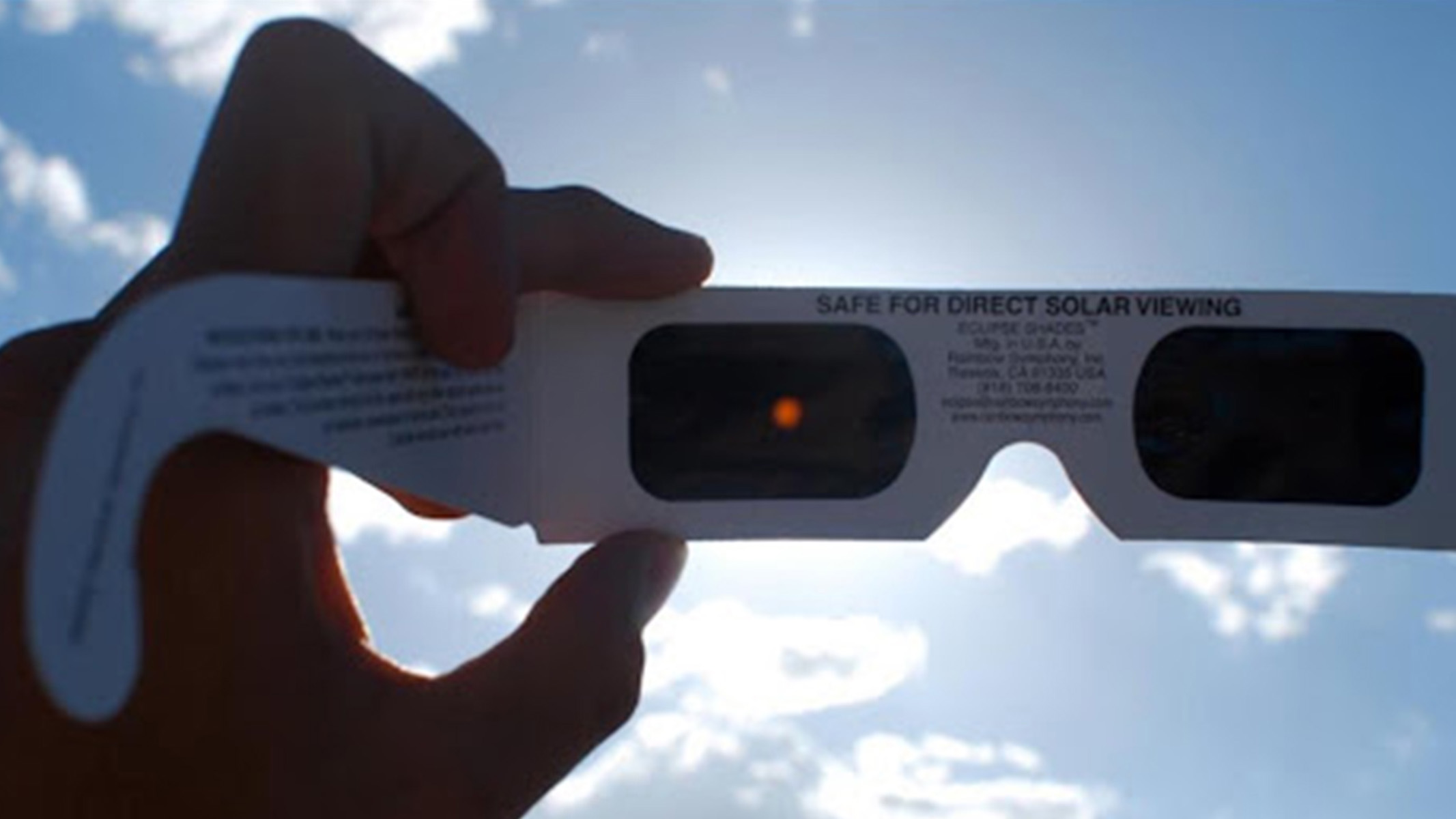What to do next with your solar viewing kit after the 2024 solar eclipse
After the eclipse on April 8, here's what you can do next with your solar-specific kit.

Breaking space news, the latest updates on rocket launches, skywatching events and more!
You are now subscribed
Your newsletter sign-up was successful
Want to add more newsletters?

Delivered daily
Daily Newsletter
Breaking space news, the latest updates on rocket launches, skywatching events and more!

Once a month
Watch This Space
Sign up to our monthly entertainment newsletter to keep up with all our coverage of the latest sci-fi and space movies, tv shows, games and books.

Once a week
Night Sky This Week
Discover this week's must-see night sky events, moon phases, and stunning astrophotos. Sign up for our skywatching newsletter and explore the universe with us!

Twice a month
Strange New Words
Space.com's Sci-Fi Reader's Club. Read a sci-fi short story every month and join a virtual community of fellow science fiction fans!
After those few crucial moments of the 2024 total solar eclipse on April 8, millions of Americans and tourists will have experienced one of nature's greatest spectacles. So naturally, many observers will be looking to get their hands on appropriate equipment in order to observe the sun safely.
After the main solar eclipse event is over, apart from driving for miles and avoiding congestion, thoughts turn to what to do next with your solar filter apparatus. Yes, these pieces of solar observing kit are affordable, but they can also be reused for upcoming celestial events and astronomical observations. It's always best to reduce, reuse, and recycle where possible. This applies to eclipse glasses, viewfinders, and a whole host of other astronomical apparatus. Read on for some ideas.
Reusing solar observing kit
When observing the sun and solar eclipses, most audiences will look towards purchasing solar eclipse glasses, viewfinders, solar filters and adapters for appropriate telescopes and binoculars.
After the eclipse is over, it is worth looking after your eclipse glasses. Even though they may be affordable, they are an investment and so it is worth keeping your pair for an upcoming eclipse; especially if eclipse glasses become harder to get hold of, was certainly the case for April 8.
Before keeping your glasses, first make sure to inspect them. First of all check the expiry date of your eclipse glasses. If they exceed a certain date, just do not use them. They are not safe to use and are not safe for future use. If you notice any crease markings, fingerprints or tearing to the lens element on your eclipse glasses, you will need to dispose of them appropriately, as either the optical coatings is damaged or will let light from the sun through, which is a danger to your vision.
It may sound like common sense, but if the frames on your eclipse glasses become damaged, ripped, or creased, again, it is another reason not to use them, as you do not want them to fall off during use.
Eclipse glasses can be great for a whole host of other astronomical appliances. For example, we get transits of celestial objects and the International Space Station, which are exciting to observe through cameras, but some of the largest sunspots can be seen by the unaided eye using proper eclipse glasses or solar filters. Keep an eye on Space.com to know when the next event is coming up. Also why not hold on to them as we approach solar maximum?
Breaking space news, the latest updates on rocket launches, skywatching events and more!
With more sunspot activity, when you have clear skies, use your eclipse glasses to see if you can catch a glimpse of those bigger sunspots. It is great fun not only to observe solar activity but also to research the size of these sunspots on relative scales to the Earth to envision our perspective within the solar system.
Recycling solar kit
If your equipment can not be reused and has been damaged as described above, you will have to dispose of it. Cardboard eclipse glasses are constructed of several elements. Some eclipse glasses have plastic film around the cardboard, which can be removed.
The lens element itself is made using a silver-black polymer, which regrettably is not currently recyclable and will need to be disposed of separately. The cardboard element can be recycled and is encouraged to be so. It can easily be separated and removed using a pair of scissors if tearing with your hands won't suffice.
Some organizations (including Astronomy Without Borders) run recycling programs specifically for eclipse glasses. They usually collect the glasses, remove the lenses, and recycle the frames. They might even reuse the glasses that are in excellent condition, sending them to schools in different countries where an eclipse is due to happen, for example.
Eclipse Glasses USA will be also conducting donation programs for the April 2024 eclipse, as they did for the Annular Solar Eclipse in October 2023. If possible, return your used eclipse glasses to them so they can be repurposed for use in other countries.
Closer to home, your local school or skywatching society might be grateful for unwanted equipment. Appropriate checks will be required to make sure your equipment is 'solar-safe'.
Reducing solar kit purchases
Even after the eclipse is over, having your own solar observing gear gives you more opportunities to observe and photograph the sun. Some equipment can be more complex, so if you decide to make the investment, it is worth doing your research so you know how to use it.
For example, because of the April Total Solar Eclipse, the price of eclipse glasses rose considerably. Sometimes only packets of larger quantities were available. If this happens to you, do lend or give a pair to someone else so they can enjoy solar events too, without having to spend themselves.
Remember that solar-specific products like solar telescopes are just that. They can only be used to observe the sun. Think twice if you want an instrument for observing other celestial bodies such as the planets — you'll need a regular telescope for this.
As we've discussed before, there are so many ways now to observe and document the sun; especially photographically if you were to create time-lapses, showing the changing face of the sun, or for upcoming transits of innermost planets of the Solar System and artificial satellites, including the International Space Station. In the latter case, a telescope would be required as eclipse glasses wouldn't provide the required power/magnification.
Submit your photos! If you captured a photo of the April 8 total solar eclipse and would like to share it with Space.com's readers, send photos, videos, comments, and your name, location and content usage permission release to spacephotos@space.com.

Josh Dury (B.A. FRAS) is an Award-Winning Landscape Astrophotographer, Presenter, Speaker and Writer based in Somerset, UK. His work has been recognized by NASA, Astronomy Picture Of The Day, BBC, CBS, and CNN, amongst others. With endorsements from Apollo 11 Astronaut Buzz Aldrin and ESA British Astronaut Tim Peake. His work has been recognised by major photographic and astronomical bodies, including The World at Night (TWAN), Astronomy Photographer of the Year, Historic Photographer of the Year and PetaPixel, whilst collaborating with photographic brands: Canon, Sigma, Benro, NiSi and Tenba. As a Delegate of The International Dark-Skies Association (IDA) he uses astrophotography as a platform, in raising awareness of dark-sky conservation and the impacts of light pollution to the natural environment.



